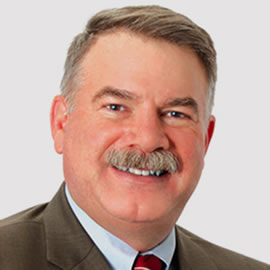“Treating mass casualties or performing emergency procedures in the middle of a firefight or while under chemical attack are not part of the ordinary medical school curricula.” Rep. Constance A. Morella (R-MD)

Editor-In-Chief, Chester “Trip” Buckenmaier III, MD, COL (ret.), MC, USA
Constance “Connie” Morella was a Republican representative for Maryland’s 8th Congressional District from 1987-2003 during the Bill Clinton presidency and made the above comment in 1994.
At that time, Vice President Al Gore and a team of congressional leaders were working to reduce the nation’s deficit. They were planning the demise of the Uniformed Services University, suggesting that military physicians and nurses could be procured from civilian medical institutions through health professions scholarship programs at significantly less cost than graduates from America’s only military medical school. Clinton’s spending plan for the 1994 fiscal year called for the first significant steps to close the institution.
As a newly minted USU doctor, I was then serving my first utilization tour in Panama as a flight surgeon. I remember writing Sen. Kay Bailey Hutchison (R-TX), my senator, expressing my dismay at the possible loss of USU. I reminded her that the same benefits in leadership and defense experience that the U.S. military achieved through the service academies and depended on during wartime explained the requirement for a medical service academy. The service academies represent the repository of collective knowledge and experience that has established the U.S. military as peerless in the world. Congress chartered the USU on Sept. 21, 1972, because leaders understood a strong military required similar peerless performance in military medicine on the battlefield.
Fortunately, the misguided attempt to close the university was thwarted because most congressional leaders realized that investment in military medicine was a force multiplier; warriors perform better when backed by a comprehensive battlefield medical system. Furthermore, investment in quality military medicine is the only ethically sound approach to caring for those who defend the nation.
Sadly, history is repeating itself as the university community was informed by the USU president of an Oct. 31, 2019, meeting of the Defense-Wide Review committee that it is recommending military budget cuts that will close USU. At the very least, USU will likely experience significant reductions in its operating and research budgets. Much of the argument to close USU is based on the concern that USU-trained physicians cost approximately $253,000 annually, which is about 2.5 times more than physicians brought into military service through private medical schools via health professions scholarships. This cost difference resolves when retention factors are considered. The average USU graduate serves more than 15 years, while physicians from other sources serve just over nine.
Of course, USU graduates are more expensive in the long run, because they stay in government employment longer. This focus on cost, though understandable, is missing the value of USU as a vital institution for this country.
Interestingly, my editorial last month, “Embrace the Suck,” touched on the intangible value that USU brings to military medicine. I generated this editorial before knowing anything about the latest effort to close USU. It is not that physicians and nurses from civilian training cannot become quality medical officers; many do, and many become some of our most exceptional military medical leaders. It is the recognition that practitioners of military medicine are doing something different and unique compared to their civilian counterparts. Just like the profession of military arms that maintains and refines its unique and vital function for the country through the nation’s service academies, military medicine has a similar need to maintain and refine the unique aspects of medicine during wartime. USU is the only medical institution that fulfills this vital and necessary function for our military and the country it protects.
There are other interesting facts about USU graduates that are worth factoring into the cold calculus of the government budget:
- USU graduates deploy more than 250% longer than professionals from other accession sources.
- USU graduates represent a significantly higher proportion of field grade medical officers.
- Medical officers for special forces units, more often than not, come from USU (180% higher in the Army).
- Compared to physicians from other sources, USU graduates have a higher percentage of specialty board certification.
The list goes on. In short, USU students are the foundation upon which a successful military medical program in support of our warfighters is built. As evidence for this, I point to the less than 10% died-of- wounds rate achieved during the last 19 years of conflict. This statistic was no accident. That historical benchmark, in my opinion, is only possible because USU has existed.
Am I biased? Hell, yes. As a 1992 USU graduate, I know that my success as a military physician and the positive changes I made on battlefield medicine would not have been possible without my military-focused medical education and the many USU graduates who worked and deployed with me. Were there many excellent military providers from civilian sources deployed with me? Absolutely, but we all benefitted from the institutional experience and knowledge that USU brought to the military medical fight. It is not that we cannot do battlefield medicine without USU; the question is why we would want to?
Here is my bottom line. I have a daughter serving as a 1st lieutenant in the U.S. Army. Like any parent of a servicemember child, I have anxiety about her potential deployment to the many conflicts our country is involved. I take comfort knowing that USU graduates will be out there with her, should the unthinkable happen. The alternative is not an option for me. I have written and expressed to my congressional representatives my thoughts on this topic, and I urge the federal medicine community to do the same regarding this issue.
